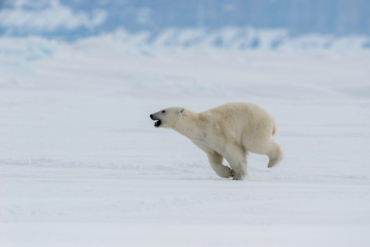Officials in Minnesota are urging residents to refrain from dumping unwanted pet fish into local waterways after discovering giant goldfish in a local lake.
A tweet from the City of Burnsville, Minn., about 30 miles south of St. Paul’s Teller Lake, showed a small tank filled with several enormous goldfish, some of which appeared to be more than a forearm in length.
“Please don’t release your pet goldfish into ponds and lakes! They grow bigger than you think and contribute to poor water quality by mucking up the bottom sediments and uprooting plants,” the tweet said.

People releasing pets into the wild has become an issue nationwide. In Florida, pythons and other reptiles that were once pets are frequently found in larger sizes and quantities. They are now invasive, putting native species in danger.
In the Great Lakes region of Michigan (and beyond), small zebra mussels — used as bait, or even for aquarium pets — have become a scourge of waterways by creating razor-sharp beds of mollusks at popular recreation areas and clogging up critical water infrastructure.
These animals can have devastating impacts on local wildlife and habitats, so officials are urging folks to be responsible when getting rid of a pet. The Minnesota Department of Natural Resources lists dozens of species of fish as invasive, along with many more plants and animals.
“Certain species that can threaten natural resources and their use have been designated as prohibited invasive species in Minnesota. It is unlawful (a misdemeanor) to possess, import, purchase, transport, or introduce these species except under a permit for disposal, control, research, or education,” the department wrote.
The U.S. Fish and Wildlife Service estimates that invasive species cost roughly $120 billion in damages in the U.S. each year, plus billions more in prevention, detection, and management.
Goldfish: An Invasive Species?

Even goldfish, which can appear at first blush to be harmless, can have serious negative effects on local waterways. The Fish and Wildlife Service says goldfish can grow to the size of a football and weigh 4 pounds. Wildlife workers have found such specimens in bodies of water including Lake St. Clair in Michigan, Lake Tahoe in Nevada, and Teller Lake in Colorado.
“Many of the animal invaders in our country, such as lionfish and snakeheads, started out as a pet. Venomous fins and wicked teeth notwithstanding, your goldfish is no exception,” the U.S. Fish and Wildlife Service said.
Officials say those who are ready to part with their goldfish should find someone willing to care for them through a pet store, school, or hobbyist club. Local veterinarians can also help humanely dispose of aquarium pets.
Regardless of what type of pet you have, remember, it’s never a good idea to release it into the wild. In this case, don’t dump your goldfish into any old lake.








